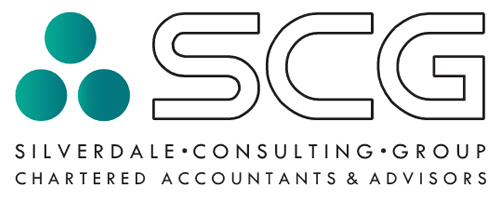A self-managed super fund (SMSF) isn’t for everyone. While it does have many benefits, managing an SMSF also requires a lot of time, energy and responsibility, which is why it’s important to have good knowledge of SMSFs before you begin. Our Eaglemont accountants have put together five tips for SMSF beginners in today’s blog.

#1: Be sure that an SMSF is right for you
Before you even think about starting an SMSF, you need to be sure that you are ready to manage one and that you qualify to do so. Managing an SMSF requires a lot of time, patience, and effort. If you are someone who cannot keep up with the paperwork, administration and legal responsibilities of an SMSF, then managing one may not be right for you.
In fact, ASIC’s recent review of SMSF trustees found that:
- 38% of trustees believed running an SMSF was more time-consuming than they expected
- 32% said that the set-up and running costs were greater than expected.
This is why it is crucial to do your research and be sure that an SMSF is the right investment choice for you.
#2: Know the pros and cons of each trustee structure
A key part of managing your SMSF is choosing a trustee structure and appointing trustees. There are two kinds of trustee structures:
- Individual, for which you can choose up to four individual trustees
- Corporate, for which a company and its directors act as your trustee.
Pros and cons of an individual trustee structure
Pros:
- It’s easier and more cost-effective initially to set up an individual trustee structure (compared to a corporate trustee structure).
- With an individual trustee structure, you will only need to consider superannuation laws.
Cons:
- Any assets owned by the fund will have each member’s name on the ownership documents, meaning that if a member leaves or joins the fund, all documents will need to be changed accordingly. Constant document changes can eventually be quite costly.
- Each individual member of your fund will be fined if your SMSF incurs a fine.
Pros and cons of a corporate trustee structure
Pros:
- Any fund assets are recorded in the company name (not in individual names). This means that the documents will not need to be changed if someone leaves or joins the fund.
- If your SMSF incurs a fine, the corporate trustee will only be fined once, as a whole. This means the fine can be split among the corporate directors, rather than each person being fined.
Cons:
- A corporate trustee structure may cost more to set up initially. You may find, however, that it saves money in the long run through a lower amount of paperwork.
- In addition to superannuation laws, corporate trustees must be aware of company laws.
#3: Diversify your investments
Managing a portfolio of assets and diversifying your investments is one of the main ways you can mitigate investment risk. In particular, having a portfolio of uncorrelated assets means that you lower the volatility of your assets because they will remain steady. Essentially, this means that if one asset underperforms, your other assets will still be able to keep you on track.
You can diversify your assets by investing in:
- Property
- Global shares
- Australian shares
- Cash and savings accounts
- Fixed interest investments, such as term deposits.
#4: Know the jargon
Understanding complex rules, ideas and language is a key part of managing an SMSF successfully. We believe there are three terms that everyone who manages their own super fund should know:
- Sole purpose test. In order for your fund to be eligible for tax concessions available to super funds, it needs to pass the sole purpose test. This test essentially provides proof that the sole purpose of your fund is to provide retirement benefits to its members, or to those who depend on them if a member passes away before retirement.
- Related parties. Any member of the super fund or someone who is related to a member of the super fund in some way (such as family, friends and business associates).
- In-house assets. These are loans to, investments in, and leases with a related party. An in-house asset might be a holiday home that is owned by the fund, for example.
#5: Seek professional advice from an SMSF accountant
Superannuation is a significant aspect of everyone’s financial lives. At times, it also happens to be difficult to navigate, especially if you are managing an SMSF. This is where professional financial advice becomes extremely valuable.
An accountant will be able to provide you with information and advice on:
- Laws and regulations to do with superannuation and SMSFs
- Accounting and administration
- Relevant taxation procedures.
Looking for an SMSF accountant in Eaglemont?
Silverdale Consulting Group is a financial consultation firm based in Eaglemont. Our team of financial professionals has proudly supported the accounting industry for over 40 years. This knowledge of the industry is what supports our range of financial services. We’ll be able to help you take control of your finances, whether you are looking for an Eaglemont accountant for SMSF or for other personal and business finances.
To receive professional assistance with your SMSF from an accountant in Eaglemont, contact us on (03) 9497 5885 today.
